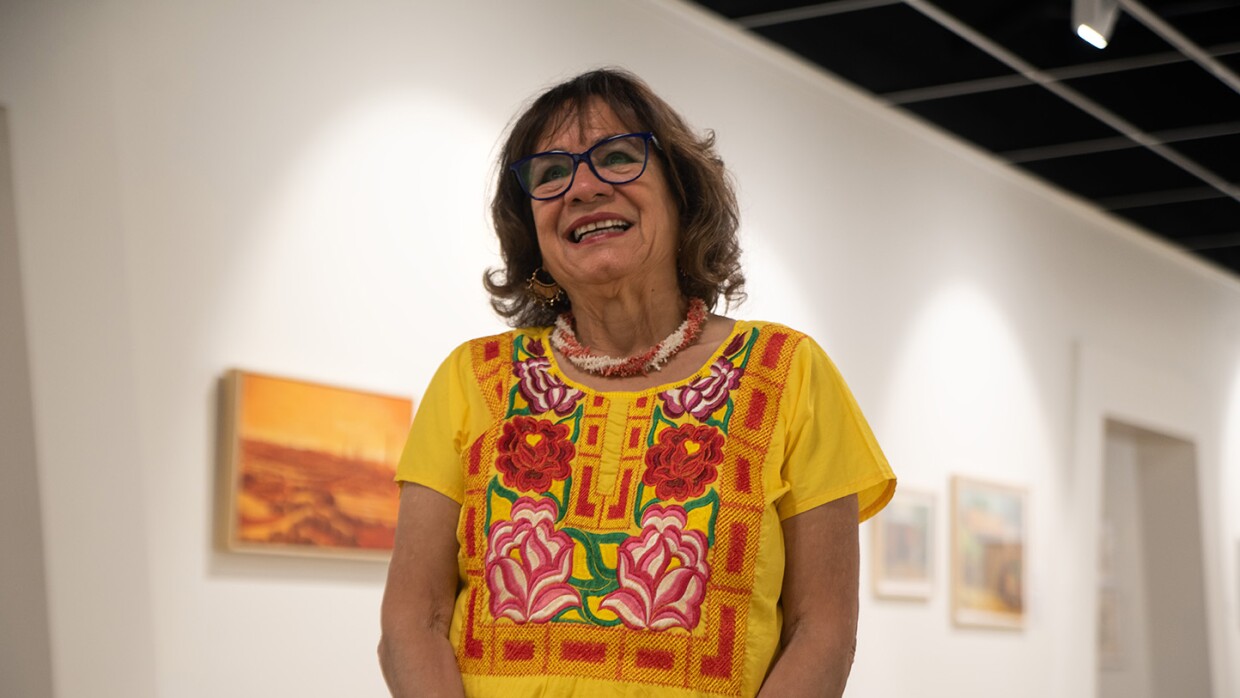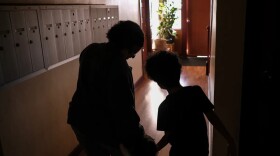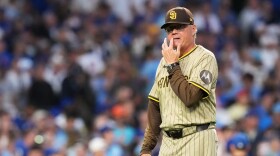Chicano Park Museum and Cultural Center 3rd Anniversary
3-7 p.m. Saturday, Oct. 11 | CPMCC, 1960 National Ave., Barrio Logan | Free | MORE INFO
Seated in an unassuming building on National Avenue, just steps from Chicano Park's vibrant murals, founder Josie Talamantez is proud.
It's a feeling she hopes others share as they celebrate the Chicano Park Museum's anniversary this weekend.
"A sense of pride, a sense of enjoyment, a sense of ownership. You know, it's always there for them," she said.
Talamantez was also one of the founders of Chicano Park, a National Historic Landmark, and part of the Chicano Park Steering Committee.
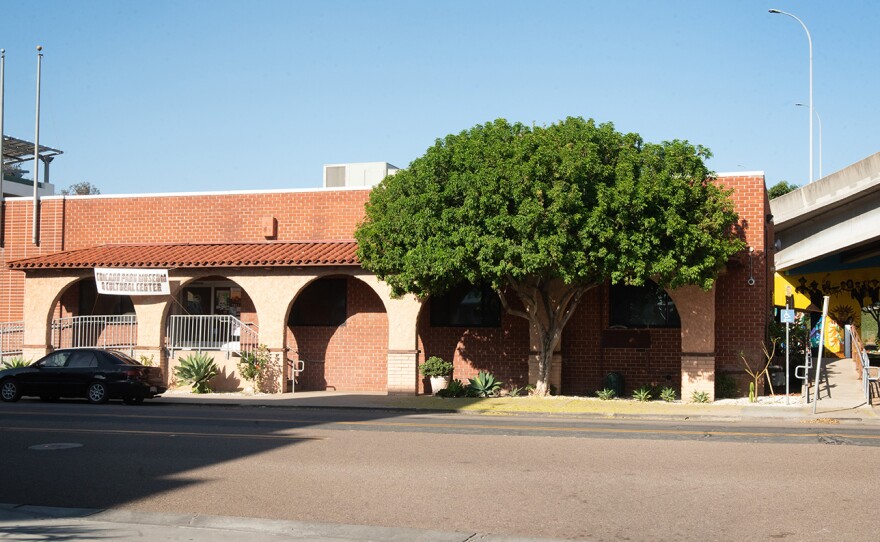
A fractured community
She was there on day one, in 1970, when students formed a human barrier to stop construction in the space that had been promised as a park.
The park was meant as a consolation prize after the freeway cut through their neighborhood.
"Regarding the history of this community in case you don't know, we were 20,000 residents strong before (Interstate 5) and the San Diego-Coronado Bridge. And we're reduced down to less than 5,000 within less than 12, 14 years — without a public process. I mean, they just knocked on our door and said, 'Eminent domain. Out,'" Talamantez said.
The museum stepped in to continue the critical work of archiving these types of stories.
"We began collecting oral histories at the time because we knew we needed to value the histories of this community before they were all gone," she said.
A museum to 'preserve, educate and empower'
The Chicano Park Museum and Cultural Center was established in 2015, but it took another seven years to open a physical space. Its mission is to continue the archiving, organizing and community outreach work of the Chicano Park movement and the Chicano Park Steering Committee, while also serving as a thriving visual arts gallery and community hub.
The museum has two galleries, including one dedicated to community artists. It offers workshops, oral and object history initiatives, mobile classroom projects, outreach and other programs to support and sustain creativity, expression and identity.
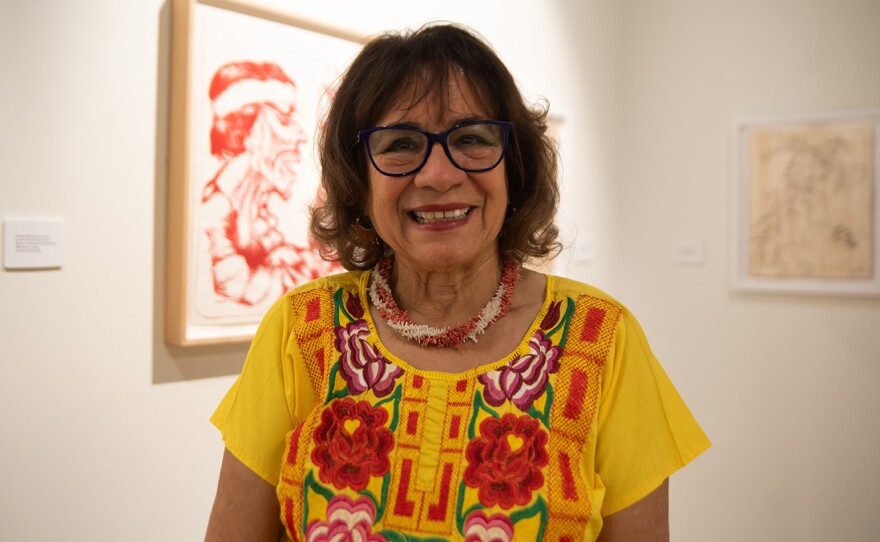
Federal cuts jeopardize electric microtransit
The museum recently lost $8 million dollars in EPA funding for a community microbus, the Via Verde project, designed to connect and reunite the long-fractured community. Roads and sidewalks that connect the Interstate-divided neighborhood can be difficult or dangerous for pedestrians.
Via Verde will provide on-demand, bilingual, free electric vehicle transit across Barrio Logan and Logan Heights, offering residents door-to-door rides to grocery stores, bus stops, medical appointments, community centers and more.
But the grant was canceled under the Trump administration, citing incompatibility with the agency’s funding priorities.
"(Trump) didn't even go through Congress. He just — these were Congress approved. So, like that, we went from a microtransit in place to now trying to figure out how to get $8 million," Talamantez said.
In the meantime, artists, musicians and community members will convene at the Chicano Park Museum on Saturday to honor the space — and the art, stories and community it strives to preserve.

DIY art as a bridge
Irie Zepeda, founder of Por la Mano Press, will activate the museum's new printmaking studio with hands-on demonstrations for visitors.
“Por la Mano” translates to "by the hand," inspired by Zepeda's ancestry as well as the simplicity of do-it-yourself art.
"Rasquache is a big — it's a word that's part of my community. It's like, you make the most from the least," Zepeda said. "And I think printmaking is very much that. It even is rooted as a form of resistance and resilience in the movement. It was an easier way for folks to make accessible posters and flyers to get their messages out there."
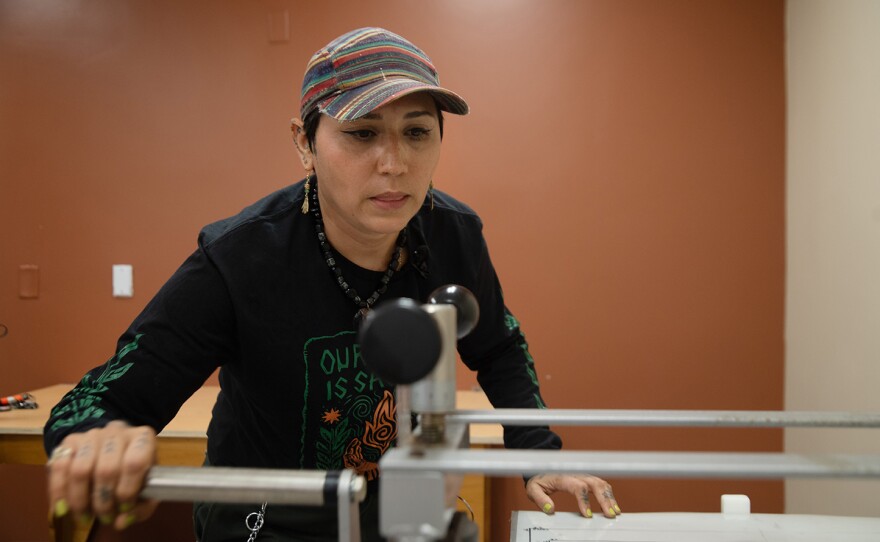
As a creative kid in Barrio Logan, Chicano Park was Zepeda's outdoor gallery. The Museum and Cultural Center itself has only been around a fraction of the park's rich history, but Zepeda said the impact is immediate.
"This place means a lot — to be able to have this as a platform, have it as a space to archive, as a community hub, as a bridge as well," Zepeda said. "This is a place about storytelling, keeping stories — and stories are important because that's our history. That's how we really know where we came from."

